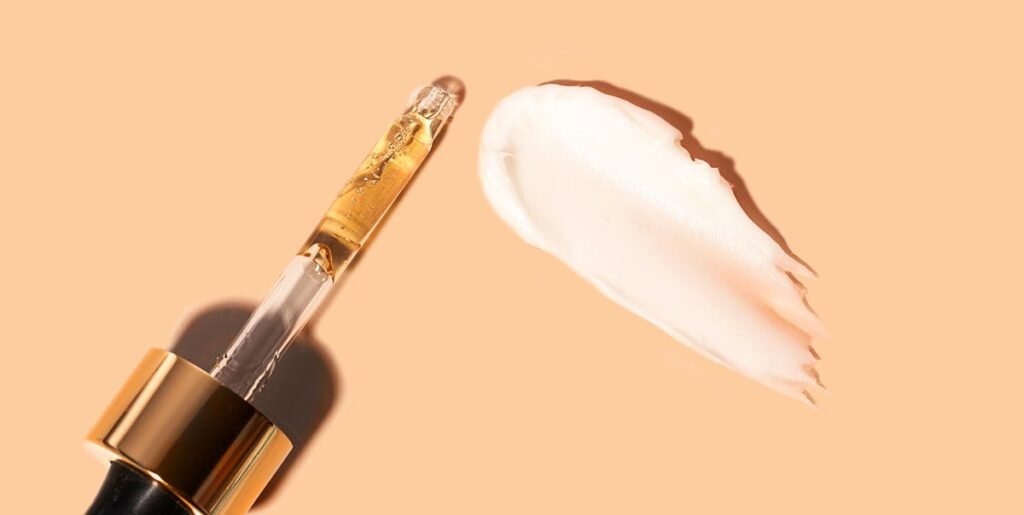Understanding Hydroquinone: The Controversial Skincare Ingredient
In the realm of skincare, few ingredients evoke as much debate as hydroquinone. Known for its effectiveness in treating hyperpigmentation, hydroquinone, often referred to as HQ, has garnered both praise and concern. While some hail it as a miracle solution for dark spots and melasma, others caution against its potential side effects, making it a contentious topic in dermatology.
What is Hydroquinone?
Hydroquinone is a topical skin-lightening agent that has been utilized for decades. Its mechanism involves inhibiting the enzyme tyrosinase, which plays a crucial role in melanin production, resulting in reduced pigmentation. Dr. Keemberly Kim, a board-certified dermatologist, notes its effectiveness for conditions like melasma, which can be notoriously challenging to treat due to its hormonal and genetic influences.
Why Hydroquinone is Popular among Dermatologists
Despite recent controversies, many healthcare professionals continue to advocate for its use. Notably, a study comparing hydroquinone to other skin brighteners, such as kojic acid and vitamin C, found that hydroquinone delivered more noticeable results in just four weeks.
According to Dr. Robyn Gmyrek, a board-certified dermatologist, “Hydroquinone is still considered the most powerful topical skin-lightening agent available.” It’s essential for treating various pigmentation issues, and many dermatologists believe access to it should remain available.
The Controversies Surrounding Hydroquinone
1. Potential Carcinogenic Risks
The concerns about hydroquinone largely stem from studies conducted on animals, suggesting potential carcinogenic risks. However, Dr. Gmyrek emphasizes that there’s no evidence of cancer linked to its topical application in humans. The International Agency for Research on Cancer classifies hydroquinone as Group 3, indicating that it is “not classifiable as to carcinogenicity in humans.”
2. Ochronosis
A more pressing concern is ochronosis, a permanent skin pigment disorder resulting in a blue-black discoloration. This condition typically arises from long-term use of high concentrations of hydroquinone. Recent studies suggest that using a four-percent concentration for over three months may lead to this side effect.
Dr. Kim explains, “Ochronosis is a very real risk, especially for those who have used hydroquinone for extended periods without appropriate supervision. Patients need proper guidance on its use.”
3. Skin Irritation
Hydroquinone can also cause irritation akin to retinoids, especially in individuals with sensitive skin. Following a proper skincare regimen while using hydroquinone is crucial.
How to Use Hydroquinone Safely
Consult Your Dermatologist
Before considering hydroquinone, consult a dermatologist to discuss your specific skincare needs. Your doctor will determine the appropriate concentration, typically ranging from four to twelve percent. It’s also essential to ensure that its use does not overlap with sensitive skin treatments.
Application Guidelines
- Spot Treatment: Use hydroquinone as a targeted treatment for dark spots instead of applying it across the entire face.
- Lower Frequency: Begin with applications every third night, gradually increasing use as your skin tolerates it.
- Combination Approach: Often compounded with retinoids and steroids to increase efficacy and decrease irritation.
- Limit Usage Duration: Experts recommend a cycle of three months on hydroquinone, followed by one to three months off to prevent side effects.
Sun Protection is Key
Hydroquinone can increase your skin’s sensitivity to sunlight. Using broad-spectrum sunscreen with at least SPF 30 daily is essential to prevent dark spots from reappearing. Dr. Kim suggests opting for tinted sunscreens containing iron oxides for enhanced protection.
Alternatives to Hydroquinone
For those considering alternatives, several effective ingredients can brighten the skin without the risks associated with hydroquinone:
- Tranexamic Acid: Comparatively effective and can be used on the entire face.
- Azelaic Acid: Helps reduce pigmentation while also controlling inflammation.
- Vitamin C: An antioxidant powerhouse that brightens the skin while protecting it from sun damage.
- Niacinamide: Fades discoloration, reduces redness, and enhances skin barrier function.
Conclusion: Is Hydroquinone Right for You?
Hydroquinone remains one of the most effective treatments for hyperpigmentation, but addressing its use with a knowledgeable dermatologist is vital. If you are struggling with persistent skin discoloration and are not pregnant or breastfeeding, discussing hydroquinone as a treatment option could be worthwhile.
Remember, while hydroquinone can transform your skin when used correctly, it’s essential to maintain diligence, especially with sun safety. If misused, the repercussions might include unwanted side effects. Your skincare journey should always prioritize safety and effectiveness.
For further information on skincare ingredients and safety precautions, consider exploring the American Academy of Dermatology and the Skin Cancer Foundation for reliable insights.


